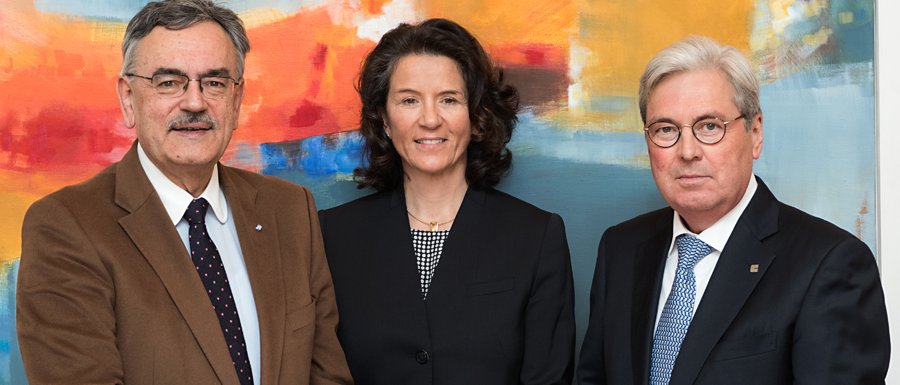TUM and Clariant create the Dr. Karl Wamsler Innovation Award for catalysis research
New Award in remembrance of a chemist and patron of the arts

The award was initiated by Clariant and is inspired by the memory of Dr. Karl Wamsler, who passed away on June 18, 2016.
In the future, once a year Cariant will join together with the TUM Department of Chemistry to present the Dr. Karl Wamsler Innovation Award as a part of the TUM Awards Dinner. The winner will be chosen by an expert jury that includes the President of the TUM, the Dean of the Department of Chemistry and two representatives from Clariant. Call for submissions starts in April 2017 (please find below), with the awards ceremony to take place on December 4, 2017 at the beginning of ceremonies celebrating the 150th anniversary of the founding of the TUM.
An influential personality in Bavarian Economy
"Dr. Karl Wamsler was one of the most important and formative figures in post-war German chemistry. He was also one of the most influential personalities in the Bavarian economy. We have initiated this In-novation Award in commemoration of his achievements," said Clariant CEO Dr. Hariolf Kottmann. He continued: "Catalysts play a fundamental role in chemical processes in terms of both economic viability and sustainability. Collaboration between research and development is of essential importance if we want to make progress in the field of catalysis. This is why Clariant in particular, as one of world's leading companies in the field of heterogeneous catalysis, has a duty to recognize outstanding work in this field. This is entirely in the spirit of Dr. Karl Wamsler."
Dr. Karl Wamsler was a generous patron when it came to supporting science and the arts. In 1963 Dr. Karl Wamsler was installed as a deputy member of the Süd-Chemie Managing Board and become a full Board member one year later. The Supervisory Board named him Chairman of the Managing Board in 1984. He continued in this capacity until 1992 and after his 30 year association with corporate leadership he moved on to the Supervisory Board, where he was Chairman until 2004.
Because of his remarkable service to the company, the Supervisory Board named him its Honorary Chairman. As a family share-holder, Karl Wamsler was closely tied to Süd-Chemie. After the acquisition of Süd-Chemie by Clariant he maintained this close connection and played a highly active role in the company's continuing develop-ment until his death. In 2015 the TUM awarded Karl Wamsler the rank of Honorary Senator in recognition of his exemplary dedication on behalf of the TUM University Foundation.
Future solutions for engergy from biogenic materials
"It will be an honor and a pleasure for us in the future to join Clariant in rewarding outstanding research in the field of catalysis in commemoration of Dr. Karl Wamsler," said Prof. Wolfgang A. Herrmann, President of the TUM. "Catalysis is enormously important, and not only for the chemical industry. Only with the help of catalysis will we be able to find for example solutions for the generation, storage and conversion of energy from biogenic raw materials."
Clariant and TUM can already look back on many years of close collaboration in the area of catalysis. The TUM Catalysis Research Center, opened in 2016, is the location of MuniCat, the strategic research partnership between the University and the specialty chemicals company Clariant, whose Catalysts business unit is one of the world's leading developers and manufacturers of catalysts for industrial processes. Here researchers from Clariant work together with colleagues from the TUM on important key issues in fundamental research and application research in the field of chemical catalysis.

